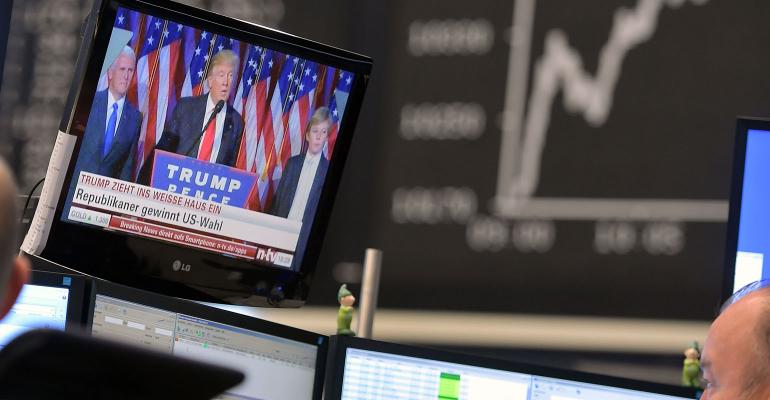When it comes to investors’ outlook for next year’s presidential election, health-insurance stocks are among the best proxies. And right now, the pendulum is starting to tilt away from Donald Trump.
Managed-care companies have been roiled by Democratic proposals that would upend the industry by replacing private insurance with a government-run system. An index comprised of five large U.S. providers fell to the lowest in four months on Tuesday on concern that Senators Bernie Sanders and Elizabeth Warren, who favor “Medicare-for-All,” have been gaining ground on frontrunner Joe Biden, who proposes a more moderate approach to health care.
While the S&P 500 Managed Health Care Index bounced back Wednesday, it remains down 14% since July 12. The latest sell-off has Wall Street analysts wondering if investors are pricing in a higher risk of a 2020 win for the Democrats.
“This conjures up the same fears that we navigated through” earlier this year, when the stocks plunged on new Medicare-for-All proposals in Congress, Jefferies analyst David Windley said in a telephone interview. “Maybe the market is saying they know President Trump is not getting re-elected.”
To be sure, markets broadly see Trump as the likely winner of the 2020 presidential election, according to data compiled by the PredictIt option site. But the president’s approval rating has been sliding in crucial battleground states, and a recent poll shows top Democratic candidates beating Trump as more voters see the U.S. economy as getting worse.
The health-insurance index’s loss from its July high was its second-largest sustained decline this year and the fourth-biggest since the Affordable Care Act came into effect in 2014, according to data compiled by Bloomberg. The index posted six consecutive weekly declines through July 23, the longest losing streak since 2008.
“It is pretty notable,” Evercore analyst Michael Newshel said, particularly because he hasn’t seen any clear catalysts behind the weakness. The move looks more like a “negative drift with the policy overhangs” plus a slightly increased concern about fundamentals more recently, he added.
Some analysts have turned more cautious on the sector’s upcoming earnings season as hospital surveys showed medical spending continued to increase. However, to Newshel, the data points haven’t been “big enough or dramatic enough to necessarily explain the magnitude of the drop down we’ve seen.”
Like Newshel, Jefferies’ Windley believes the recent sell-off is overdone from a fundamental perspective, but notes that sentiment on health insurers is “very, very difficult” to gauge right now.
The next round of Democratic presidential debates may bring more clarity on voters’ thinking. The events are scheduled for mid-September.
To contact the reporter on this story:
Tatiana Darie in New York at [email protected]
To contact the editors responsible for this story:
Catherine Larkin at [email protected]
Richard Richtmyer, Lu Wang





